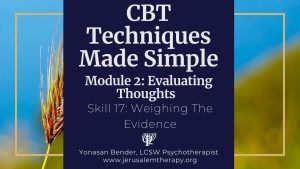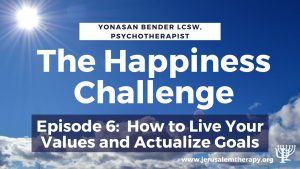At our Shabbos table, my wife and I sat back enjoying our three-year-old (who’s since transformed into a budding teenager) skip around the room singing she was a, “little birdy.” Married several years before she made her way on the scene, for too long our home was silent. It was hypnotic listening to her Tinkerbelle voice stumble onto a tune. Darting left, she vanished around a corner ending her song, “The pretty birdy flew away.” Instantaneously, I broke down crying. I’ve never had such a potently shocking realization before or after. With full force and seriousness, I realized my little birdy was going to one day leave (an ominous return to silence) and it was my duty to make that happen.
Teenage-hood is the beginning of this process of letting go and of your little birdy figuring themselves out. It doesn’t help being a teenager means having more than one biological screw loose. In no uncertain terms, Yosef’s strategy for facing “the seven bad years” of famine is your first and best line of defense – the preceding “good years” of stability, love, and humbly demonstrating your values for your kids to experience.
Great, seeing that’s not an option anymore – now what? The goal now is helping your kids develop the skills of self-awareness and problem-solving enough to sort out their own problems. To do that they need to think and thinking is no picknick. It turns out people don’t exactly organize their thoughts mentally. Rather, it’s done with the combined aid of talking. Here’s the question – how badly do you want your kids to talk to you as opposed to their screw-loose friends? There’s a price.
The price tag isn’t just listening with genuine curiosity. It’s also giving up unilateral decision making. Obviously, you need to maintain rules and expectations but they need to be predicated on compromise. Sure, it’s a gamble. At the same time, the imbued values from the “years of plenty” combined with intensely and nonjudgmentally listening, asking honest question (not leading questions) and saving your two-cents for later, is exactly what enables your teen to reason out their problems and be open to your advice but this will only happen if they know you won’t take full control of their life.
——————-
Rabbi Yonasan Bender LCSW graduated from Hebrew University’s School of Social Work. He works with adults, couples, and children from his private therapy practice in Jerusalem. He holds several semichos from Rav Yitzchok Berkovits, shlita. To share your thoughts, experiences, questions, or a different perspective, you can reach Rabbi Yonasan Bender LCSW at 053-808-0435 and at jerusalemtherapy@gmail.com or check out his website at www.jerusalemtherapy.org.




